World Alzheimer’s Awareness Day: Never too early, never too late
Today is World Alzheimer’s Day. Since 1994, 21st September has been a day to raise awareness and challenge the stigma around Alzheimer’s disease.
This year, the theme is ‘never too early, never too late’ and how preventative steps, early diagnosis, treatment and support can improve someone’s quality of life.
Scroll to read through, or skip with the buttons below.
What is Alzheimer’s?
Alzheimer’s is a brain disease that causes a decline in memory, thinking and behaviour. It’s a specific type of dementia (the name given to a broader group of illnesses that affect brain function).
What happens is a build-up of specific proteins in your brain stops the cells from communicating with each other effectively. Over time, different areas of the brain shrink. The first areas usually affected are responsible for memories.
More than 55 million people worldwide have Alzheimer’s, and it makes up between 60-80% of all cases of dementia.
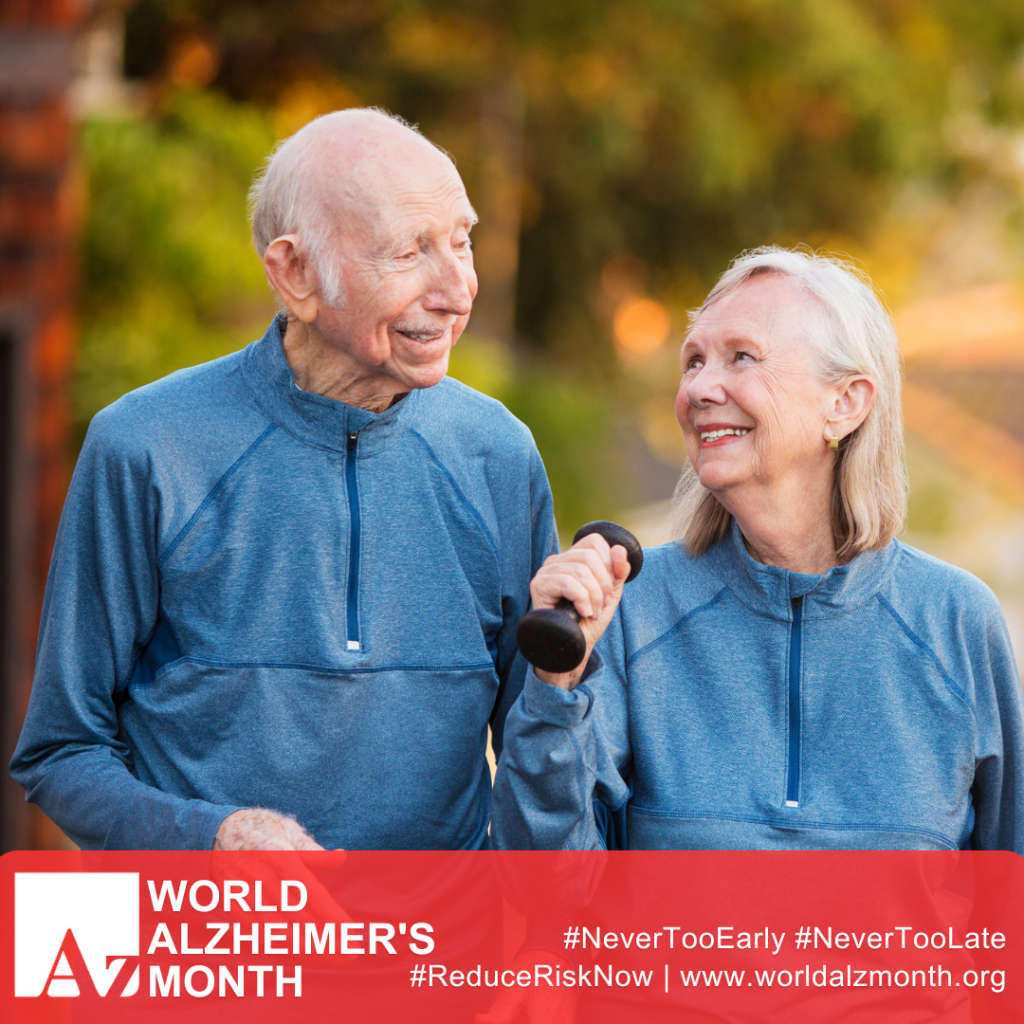
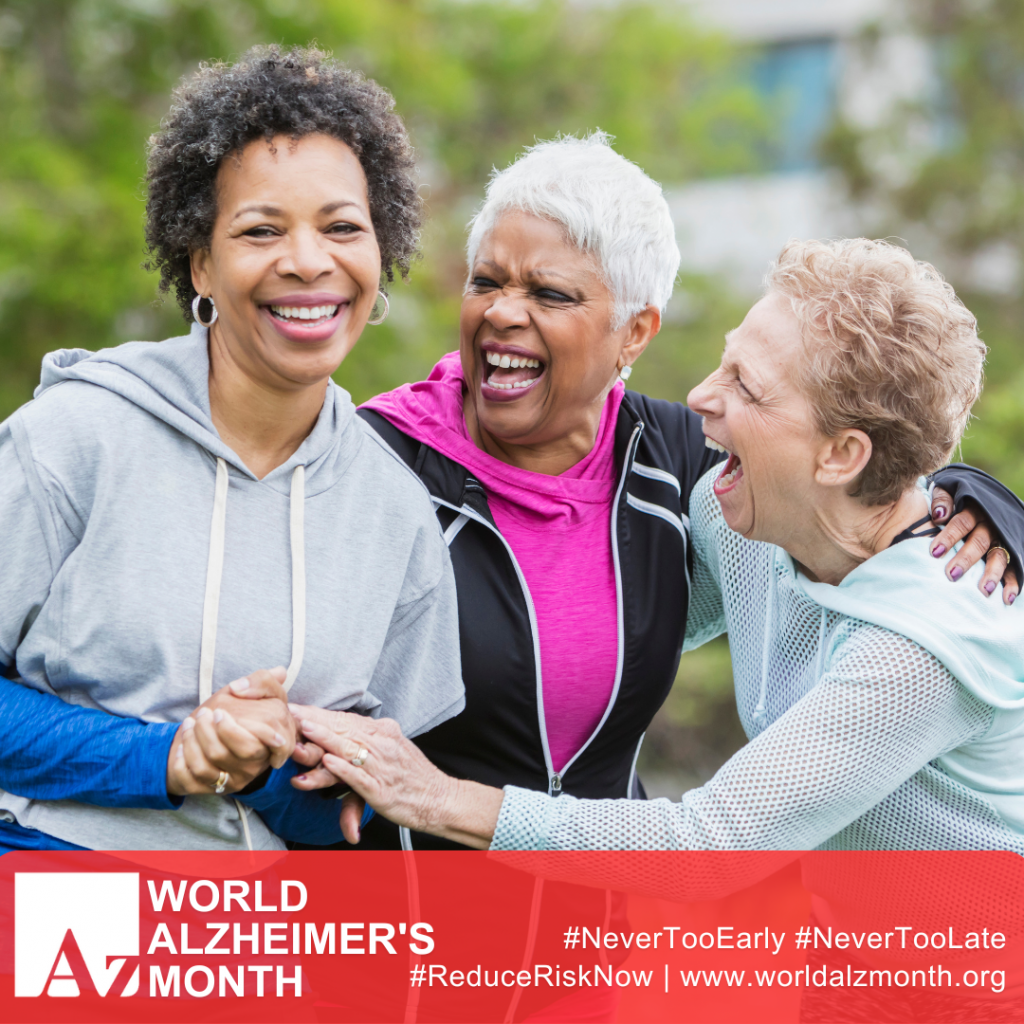
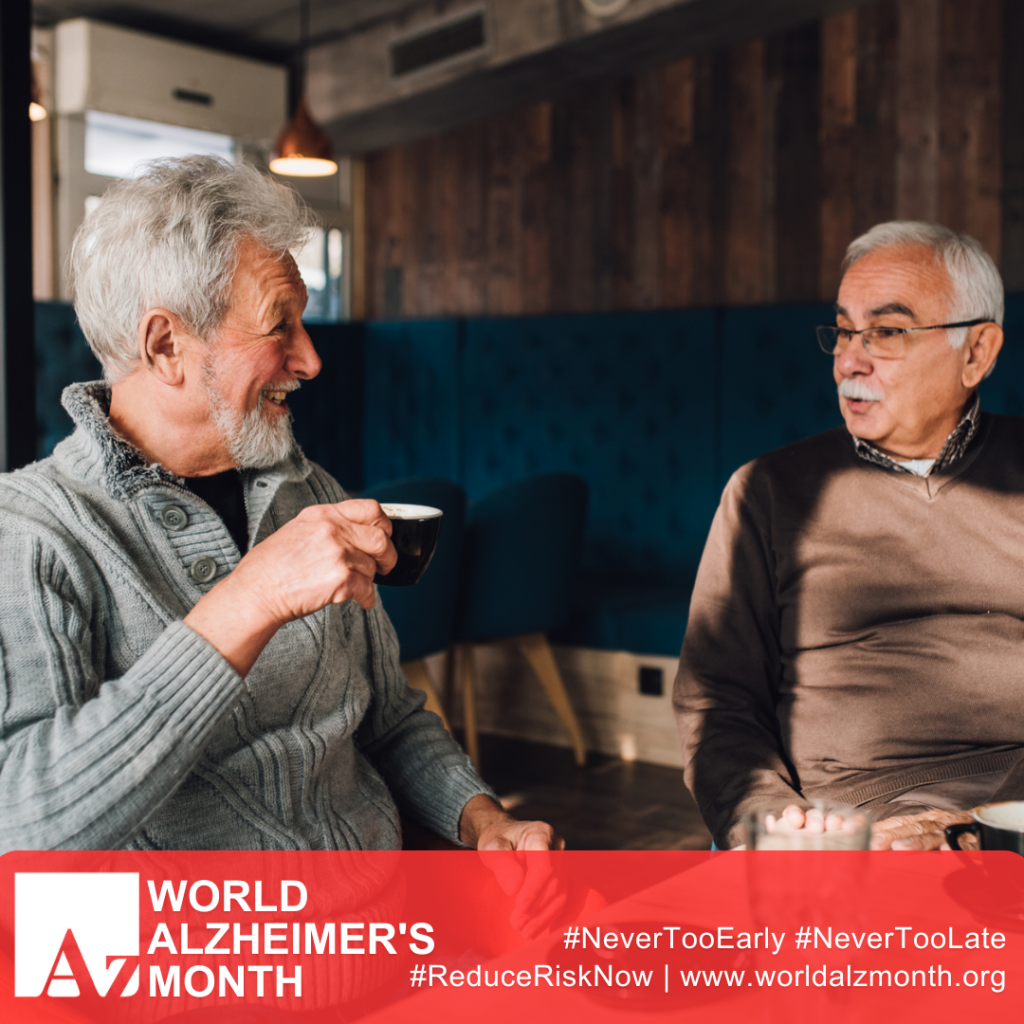
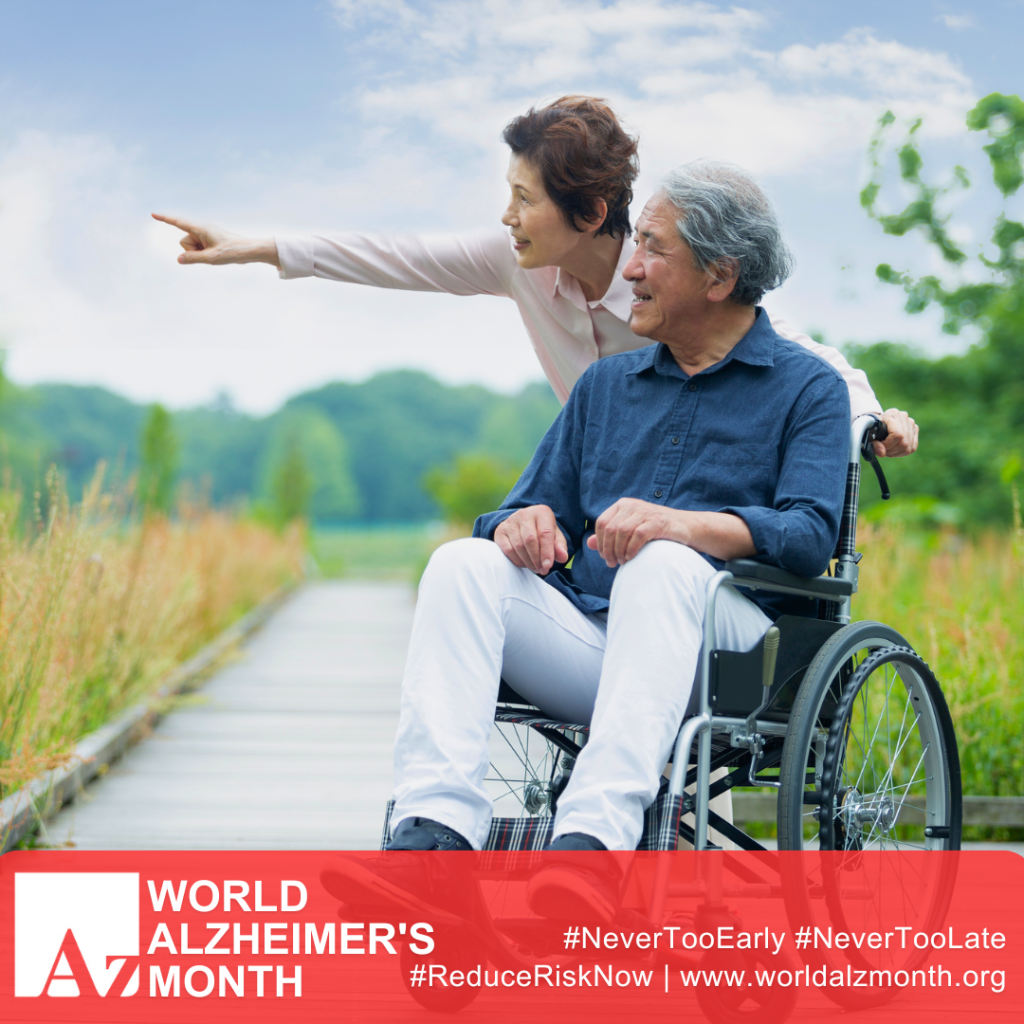
Alzheimer’s mainly affects older people, and the risk increases over time.
One in every 14 people over 65 are thought to have Alzheimer’s. Over the age of 8, it increases to one in every six people.
It’s important to add that Alzheimer’s and dementia are not normal parts of ageing.
Around 5% of cases are in people aged under 65. This is called early-onset Alzheimer’s disease.
Diagnosis and Symptoms
Alzheimer’s can develop slowly, making it difficult to recognise that there is a problem. It’s also a progressive illness, meaning it will get worse over time.
That’s why knowing the symptoms, recognising the early signs, and – most importantly – being able to tell them apart from the typical signs of ageing is so important.
The table below describes some common symptoms of Alzheimer’s and compares them to what is typical as we age.
| Symptoms of Alzheimer’s | Typical part of ageing | |
|---|---|---|
| Memory loss | When it starts to disrupt everyday life, where you can’t recall dates or events or ask the same questions repeatedly. | Someone occasionally forgets things but can recall them later. |
| Challenges with planning and problem-solving. | Examples would be struggling to follow a familiar recipe, everyday things taking longer, and being unable to keep up with bills. | The odd mistake with not remembering something, but not a repeated pattern. |
| Difficulty with familiar tasks | Examples would be getting lost driving somewhere you know, struggling to organise a shopping list or remembering the rules of a favourite game. | Needing a bit of help every so often with something technical. |
| Confusion over times and places | Someone may be unable to remember or grasp the passage of time or have trouble thinking about something that isn’t here and now. | Not being able to recall a time or event but being able to remember it later. |
| Problems with visual images and spatial awareness. | This may lead to losing balance or judging distance, making reading or driving harder. Problems with colour contrast might develop. | Becoming gradually more long-sighted with age or issues to do with cataracts. |
| New problems with speaking and writing | Finding it hard to join or follow a conversation, stop mid-sentence, and not know how to continue. Not knowing the word for common, everyday items. | Sometimes struggling to find the right word. |
| Losing things and inability to retrace steps | People may lose things or put them in unusual places and cannot track where they’ve been. It may also lead to accusations of theft against others. | Misplacing items at times but being able to retrace your steps to find them. |
| Impaired Judgement | Unwise or uncharacteristic decisions with money, or possibly not managing to keep themselves washed and fed. | Occasional, one-off bad decisions. |
| Withdrawn | Problems with following conversations or vocabulary might make people withdraw from work or social events or not keep up with activities they’ve previously been interested in. | Some lack of interest in activities. |
| Changes in mood and personality. | People may become confused, suspicious, depressed, anxious, or scared. They can be easily upset when outside their comfort zone. | Normal to have developed specific ways of doing things and become irritable if they can’t be followed. |
Recognising these symptoms in yourself or someone else can be difficult. As can knowing what to do about it if you are worried it may lead to challenging or uncomfortable conversations.
But, these symptoms could be significant health concerns, and spotting them early can be important.
The Alzheimer’s Society has some helpful resources, including a checklist you can complete and show your GP about your symptoms and advice on how to talk to someone else about their memory problems.
Risk and Prevention
We mentioned that most people who get Alzheimer’s are older, and age is the most significant risk factor, but there are others.
A family history of dementia can increase risk, as can untreated depression (although depression can also be a symptom).
Of course, you can’t change your age and family history, so if this increases your risk, you must be even more aware of the symptoms.
Then there are lifestyle factors linked to heart disease that also increase the risk of developing Alzheimer’s – smoking, lack of physical activity, being overweight or having high blood pressure or cholesterol.
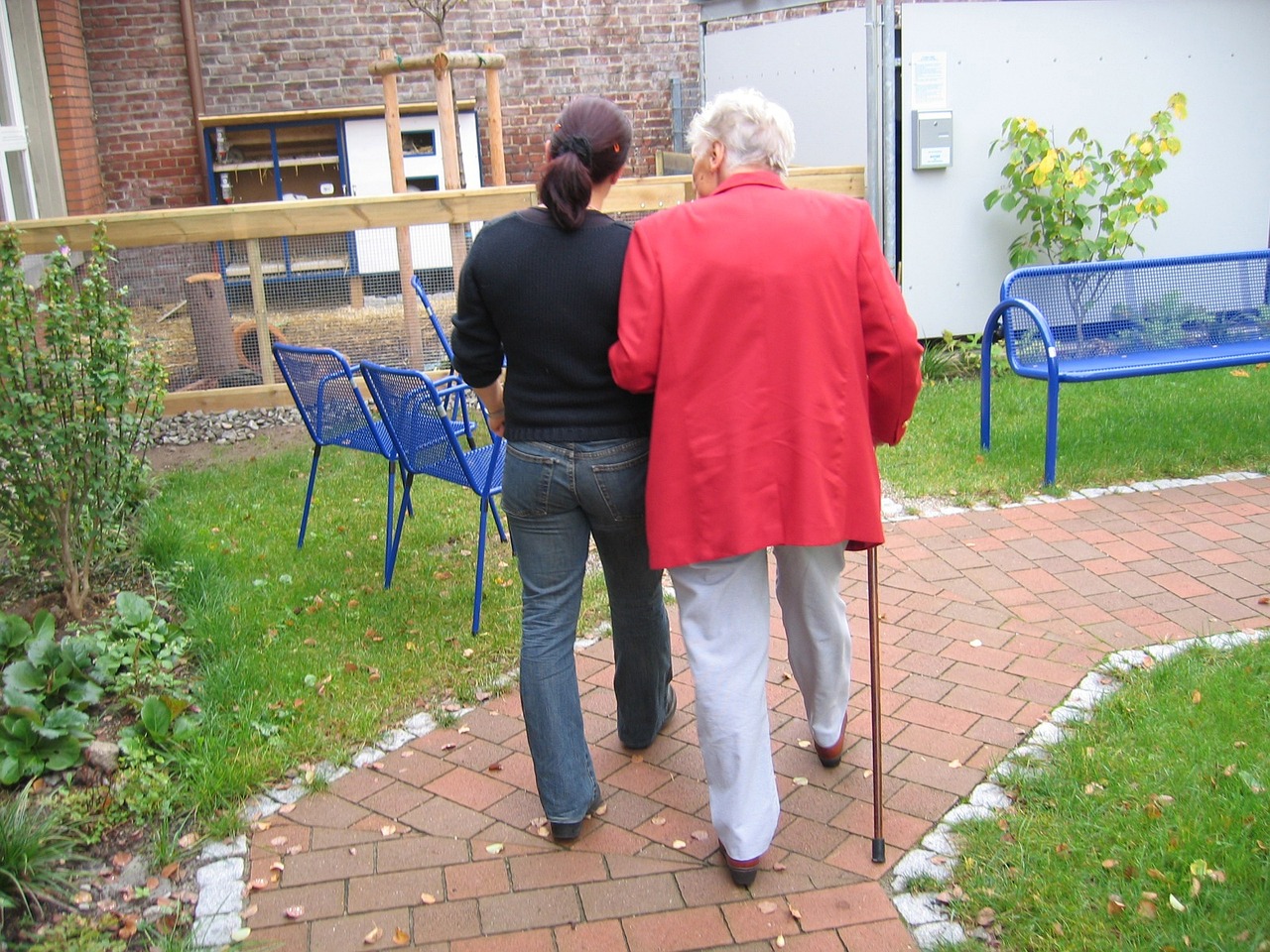



So, getting regular exercise, a healthy, balanced diet, stopping smoking, drinking less alcohol, and having regular health checks will all help.
Taking steps to reduce these factors – even after a diagnosis – can slow the progress of the illness and help people be well for longer.
Treatment and Support
Currently, there is no cure for Alzheimer’s. However, a combination of medicine and support can lessen its impact.
As the disease progresses, other medication may be prescribed to help with challenging behaviour caused by Alzheimer’s. Some therapies help to improve problem-solving skills or train better-functioning parts of your brain to help others.
But as we’ve said, these treatments will not stop the disease; they just slow its progress, and many people and families will need other support.
What that support is will depend upon individual needs, their previous situation and support structure, and, of course, how advanced the illness is.
The Alzheimer’s Society website has an excellent search function where you can find options near you and filter by category from information and advocacy to support at home and residential care homes.
You can also find local services offered by the Alzheimer’s Society – including in Newcastle – as well as guidance on legal and financial matters and looking after yourself as a carer.
Stigma
While attitudes are shown to be improving, there is still a stigma that people with Alzheimer’s and Dementia experience.
Sometimes, it’s myths or misconceptions about the condition or who can get it. Other times, it might be the real-world consequence of people living with a virtually invisible illness – someone not giving up a seat on a train as they don’t know Alzheimer’s impairs balance or not giving people ‘just a minute’ when in a public place.

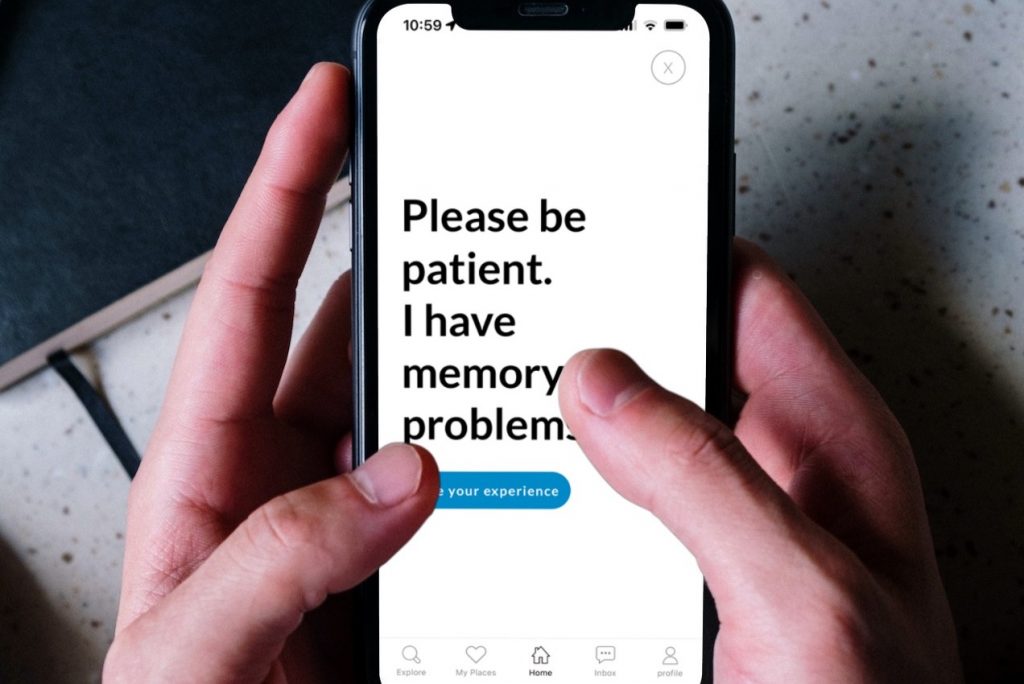
A goal of World Alzheimer’s Awareness Day is to help more people understand more about the condition – how widespread it is, how to recognise it and how it develops.
It’s also about advocating for a society that makes it easier for people with Alzheimer’s to live as well as they can.
